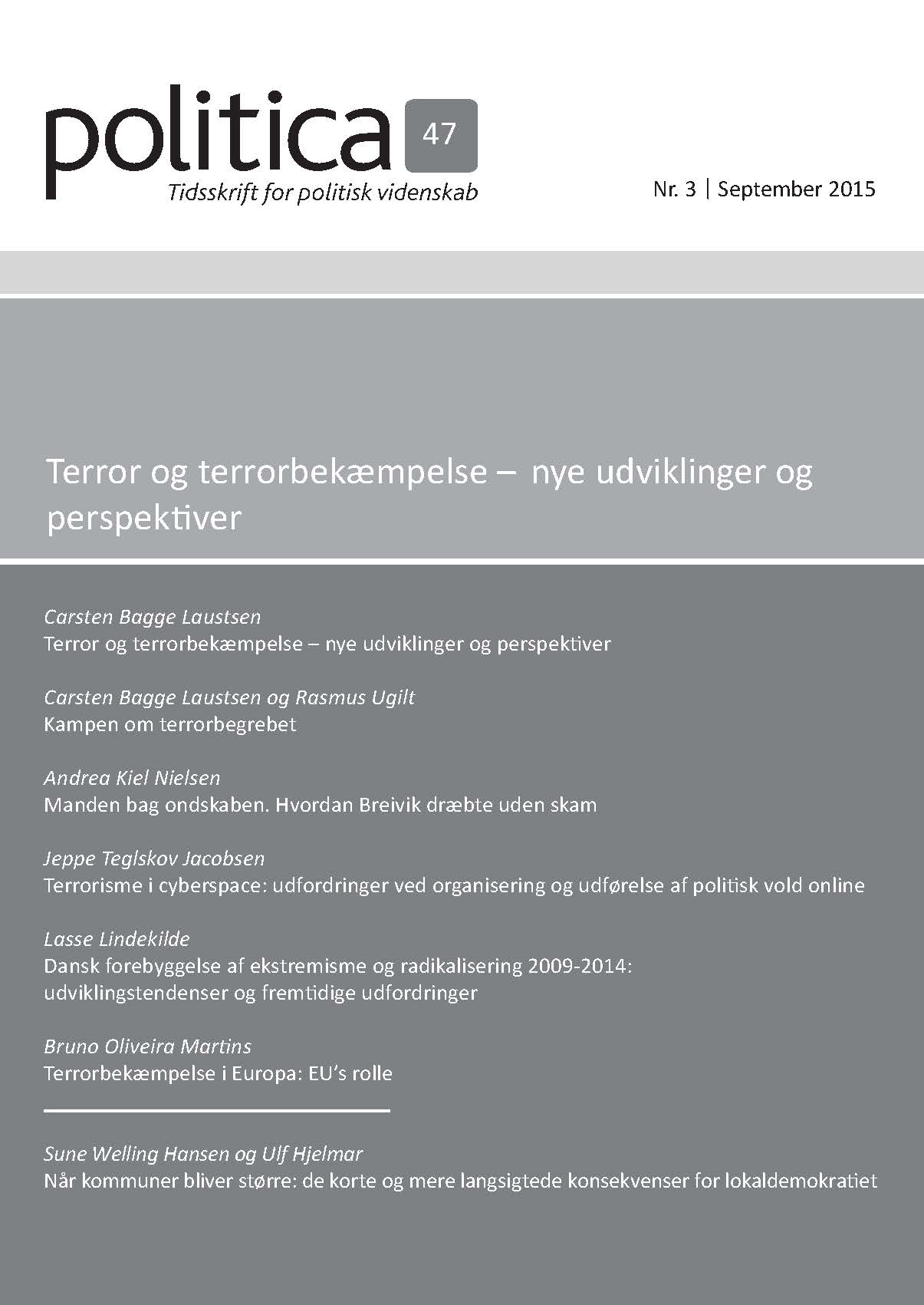Danish prevention of extremism and radicalization 2009-2014: trends and future challenges
DOI:
https://doi.org/10.7146/politica.v47i3.131449Abstract
In 2009, the Danish government led by Anders Fogh Rasmussen launched a wide-ranging action plan to prevent extremism and radicalization in Denmark. Critics have argued that the action plan in its attempt to approach the problem of radicalization in a holistic manner caused a counter-productive mixing of security and integration concerns. In September 2014, the government led by Helle Thorning-Schmidt introduced a new counter-radicalization plan, which, based on positive evaluations, continues central elements from the old plan, but also includes paradigmatic policy shifts. This article maps Danish efforts to prevent extremism and radicalization in light of the new action plan and traces developments in policy and implementation practices from 2009 to 2014. The article discusses reasons for the observed policy changes and identifies old and new challenges to the implementation of the 2014-action plan. In addition to a systematic comparison of the two policy documents, the article draws on official evaluations of Danish counter-radicalization efforts as well as practical handbooks published during the period under investigation.





